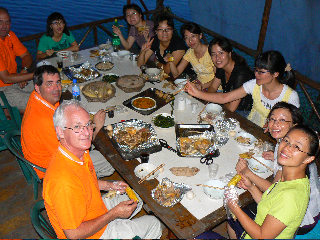25 Jul Where can you get a domain name?
On Wednesday, I encouraged all churches to get a domain name, whether or not they have current plans for a website. Now you may be wondering, “So where do we get a domain name?”
There are many places. My experience is limited to Network Solutions, Aplus.net, and Yahoo. Yahoo! was extremely frustrating, Aplus not so much. But I’ve transferred all UB domains to Network Solutions.
Network Solutions makes it easy to configure domains to use with websites hosted by other service providers. We have domains scattered among several providers, and have never had trouble configuring things through Network Solutions.
- UB.org and UBMissions.com are hosted on the Huntington University system (with the server in my office).
- Ubonline.org (home of the UB News page) is hosted by Aplus.net.
- Bluehost.com hosts our atmychurch.com and healthyministryresources.com websites.
GoDaddy.com is the largest domain registrar; Tucows.com is also popular. I’m sticking with Network Solutions (which is a bit pricier) for the UB accounts, because I’ve had such good experience.
If you open an account with an internet service provider (Bluehost, Aplus, GoDaddy–there are scores of them), you often get a free domain name (at least for a year). But make sure the account is in the church’s name (not the name of a staff member or layperson). Make sure the church controls the name.
To search for available names, go to the homepage of Network Solutions or GoDaddy.
What advice or experience can you share?

 Bradley Kittle has been appointed senior pastor of Faith Community UB church in Findlay, Ohio, effective July 1, 2008. Kittle was formerly a minister in the Evangelical Congregational Church
Bradley Kittle has been appointed senior pastor of Faith Community UB church in Findlay, Ohio, effective July 1, 2008. Kittle was formerly a minister in the Evangelical Congregational Church I’m in China participating in the English camp for Chinese teachers. We had the teachers participate in a values survey.
I’m in China participating in the English camp for Chinese teachers. We had the teachers participate in a values survey.